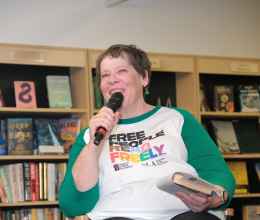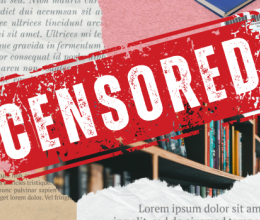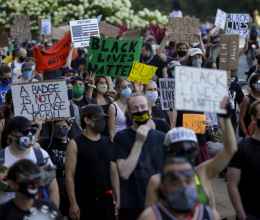
TRENTON – The American Civil Liberties Union of New Jersey (ACLU-NJ) appeared before the New Jersey Supreme Court today to argue that an amateur rapper’s rap lyrics should not have been used as evidence against him in a crime.
Rap music, argued Ezra Rosenberg, the ACLU-NJ cooperating attorney who argued the case before the court, is a genre that originated in reaction to the mass incarceration of young black males in United States.
“Whether gagsta rap is an act of ideological insubordination, or an embrace of the stigma of criminality, or simply a cry against the hopelessness of the human condition in our inner cities, it would seem to b a cruelly ironic contribution to the vicious cycle of mass incarceration for this particular art form to be used as a mechanism to lead to further convictions,” Rosenberg said. “At a minimum, more caution is called for.”
In November 2005, police pulled over Vonte Skinner, a Burlington County rapper, and searched his car in connection with the shooting of Lamont Peterson. When they looked in his backseat, they discovered 13 pages of rap lyrics that used violent language and descriptions of violence.
Although all of the lyrics were written before Peterson was shot, the lyrics were treated and admitted into trial as evidence. Skinner, who maintained his innocence, was convicted in 2008.
Skinner appealed the conviction. The ACLU-NJ filed an amicus brief that argued Skinner’s rap lyrics should be treated as protected first speech rather than as evidence. The brief argues that using rap lyrics as evidence of a confession is akin go indicting Johnny Cash for having “shot a man in Reno just to watch him die.




